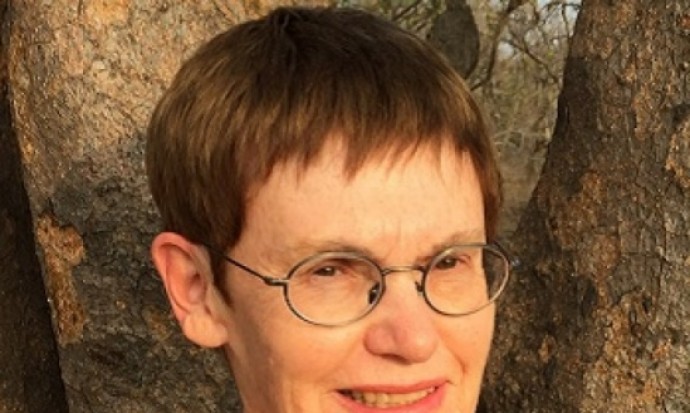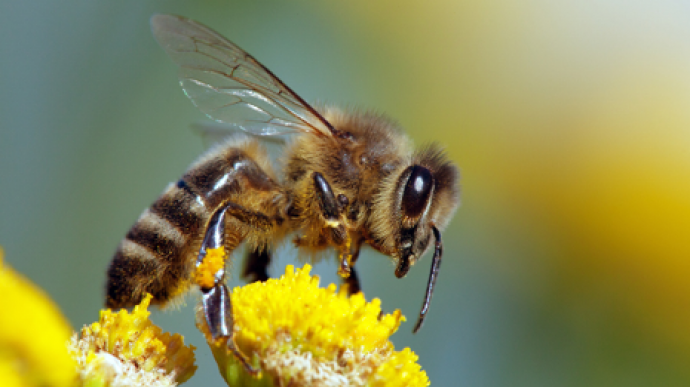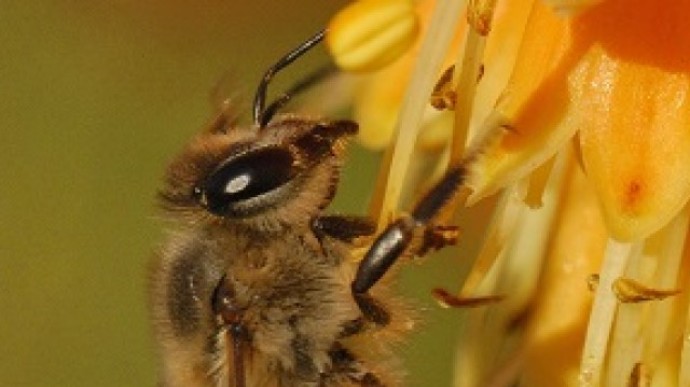Professor Sue Nicolson was born in New Zealand and studied at the University of Auckland before doing her PhD at Cambridge University in the UK. She worked in the Zoology Department at the University of Cape Town for 20 years before moving to the University of Pretoria (UP) in 2001. She was Head of the Department of Zoology and Entomology from 2003 to 2011. In Pretoria, she continued research on nectar and sunbirds that had been started in Cape Town, but also began working on honeybee physiology, collaborating with Prof Christian Pirk of the Social Insects Research Group.
Between 2011 and 2014, Prof Nicolson’s research on honeybee nutrition was supported by the UK’s Insect Pollinators Initiative, and funded by the Biotechnology and Biological Sciences Research Council and four other British organisations. This led to ongoing international collaborations.
The focus of her research is the ecophysiological aspects of pollination. Major areas of interest have included the nutritional value of nectar and pollen, the extreme osmotic and energetic challenges for birds drinking dilute nectars, and honeybee nutritional physiology and the effects of nectar toxins and pesticides (nicotine and neonicotinoids) on pollinators. Her current work concerns the mechanisms of drinking in honeybees, the digestive physiology of nectar-feeding birds, and the chemical composition of nectar and pollen.
Prof Nicolson is a fellow of the Royal Society of South Africa. In 2011, she was awarded the Zoological Society of Southern Africa’s Gold Medal, and received the Chancellor’s Award for Research at UP in 2013. She is currently a senior research fellow at UP’s Centre for the Advancement of Scholarship.
How did you first become interested in entomology and in bees in particular?
I have been fascinated by insects from a very young age; I grew up in New Zealand, where bumblebees, which were originally introduced to pollinate clover, were cute and conspicuous.
What is the most fascinating thing about bees that most people don’t know?
They don’t realise the hard work that goes into making honey – collecting nectar, carrying it back to the hive, and evaporating most of the water in it.
You’ve made many interesting findings about bees over the years. Which one are you particularly proud of?
Bees obtain carbohydrates from nectar and protein from pollen. We showed that, like other animals, they regulate their food intake around specific proportions of macronutrients, and that too much protein is bad for their survival.
Which finding concerns you?
Many of the problems affecting honeybees are due to the interaction between malnutrition and other stressors, especially diseases and pesticides.
Which of your findings do you think have been key in understanding bees better?
We demonstrated that the pollen carried by honeybees to the hive is half nectar. Chemical analyses of these pollen pellets cannot therefore be used as a substitute for those on fresh pollen (which is harder to collect).
How can bee farmers or the agricultural sector, for instance, make practical use of some of your findings?
Bee populations are threatened by habitat loss, intensive agriculture and pesticides. Farmers need to ensure that bees have access to diverse floral resources for the sake of good nutrition.
With the widespread use of pesticides, there’s been a lot of talk of bees going extinct. Do you think it is imminent and likely?
This is a big question! The short answer is that where honeybees are concerned, I do not think extinction is imminent or very likely, or solely due to agriculture. However, other bees are more threatened, such as bumblebees and solitary bees.
Do you work exclusively on bees?
No, a large part of my research has been on nectar-feeding birds, especially sunbirds. The white-bellied sunbirds so common around Pretoria make excellent experimental subjects, and we have learned a lot about their ability to handle dilute nectar diets (bird nectars have a lower sugar concentration than bee nectars).
Which part of your research do you enjoy the most?
Writing, which is perfect for working from home.
What do you do in your spare time?
I enjoy oil painting.

 Story
Story
 Story
Story
Get Social With Us
Download the UP Mobile App